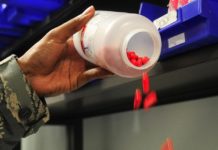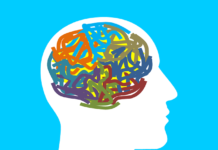Report Calls For Policy Changes In Response To Dependence and Withdrawal From Prescribed Drugs
Statistics from the UK reveal that prescriptions for painkillers and antidepressants continue to rise despite concerns over dependence and debilitating withdrawal effects. The British Medical Association (BMA) Board of Science has released a report that acknowledges changes to medical practice, research and policy necessary for addressing the dependence and withdrawal effects of benzodiazepines, opioids, and antidepressants.
Cognitive-Behavioral Therapy Halves the Risk of Repeated Suicide Attempts
A new study suggests that cognitive-behavioral therapy (CBT) may halve the likelihood of re-attempting suicide, for those who have attempted in the past.
Do Antidepressants Work? A People’s Review of the Evidence
After a meta-analysis of RCTs of antidepressants was published in Lancet, psychiatry stated that it proved that "antidepressants" work. However, effectiveness studies of real-world patients reveal the opposite: the medications increase the likelihood that patients will become chronically depressed, and disabled by the disorder.
The Power of Placebo is Strengthened by Having a Warm and Competent Practitioner
The effect of individual expectations on treatment outcomes is found to be influenced by physician attributes.
Therapy Recommended As First Line Treatment for Depression
Following an extensive systematic review of treatments for major depression, the American College of Physicians (ACP) issued a recommendation to clinicians suggesting cognitive behavioral therapy (CBT) as a first-line treatment for major depressive disorder along with second-generation antidepressants. The results of the review revealed that CBT and antidepressants have similar levels of effectiveness but that antidepressants present serious side-effects and higher relapse rates.
Long-term Usage of ADHD Drugs Linked to Growth Suppression
Findings suggest that treatment not only fails to reduce the severity of “ADHD” symptoms in adulthood but is associated with decreased height.
Rise in Psychiatric Prescriptions With NOS Diagnosis
A “not otherwise specified” (NOS) diagnosis is often used when an individual may have some symptoms related to a psychiatric diagnosis but does not meet enough criteria to warrant a particular diagnosis. A new study, published online ahead of print in Psychiatric Services, reveals that the proportion of mental health visits resulting in such NOS diagnoses rose to nearly fifty percent, and that these diagnoses do not result in more conservative psychiatric drug prescriptions.
How Should We Understand the Link Between ADHD and Early Death?
Alarming headlines, based on a recent study, declare that diagnosis with ADHD doubles the risk of early death. Psychiatrist Stephen Faraone, commenting on the original study published in the Lancet, concludes that: “for clinicians early diagnosis and treatment should become the rule rather than the exception.” This conclusion represents a false assumption that the deaths occurred in cases that were not treated.
The Case Against Antipsychotics
This review of the scientific literature, stretching across six decades, makes the case that antipsychotics, over the long-term, do more harm than good. The drugs lower recovery rates and worsen functional outcomes over longer periods of time.
Antidepressants Are Not More Effective for Severe Depression, Study Finds
A new study, published in Acta Psychiatrica Scandinavica, found that antidepressant efficacy was not dependent on severity.
Largest Survey of Antidepressants Finds High Rates of Adverse Emotional and Interpersonal Effects
I thought I would make a small contribution to the discussion about how coverage of the recent airline tragedy focuses so much on the supposed ‘mental illness’ of the pilot and not so much on the possible role of antidepressants. Of course we will never know the answer to these questions but it is important, I think, to combat the simplistic nonsense wheeled out after most such tragedies, the nonsense that says the person had an illness that made them do awful things. So, just to confirm what many recipients of antidepressants, clinicians and researchers have been saying for a long time, here are some findings from our recent New Zealand survey of over 1,800 people taking anti-depressants, which we think is the largest survey to date.
Study Suggests Long-Term Antipsychotic Use May Result in Poorer Cognitive Functioning
Association found between long-term antipsychotic use and poorer performance on cognitive tasks in adults diagnosed with ‘schizophrenia.’
Mental Health Disability Claims Continue to Climb
According to new research by Joanna Moncrieff and Sebastião Viola, mental health problems have become the leading cause of disability claims in the UK. While the overall number of claims for other conditions has decreased by 35%, claims related to “mental disorders” have increased 103% since 1995.
Antidepressants’ Superiority to Placebo in Major Depression Challenged By Reanalysis
The October edition of the Journal of World Psychiatry, the 3rd ranked journal of Psychiatry, will publish a reanalysis of antidepressant efficacy versus placebo in major depression. When the researchers, Arif Khan and Walter Brown, analyzed the data from the FDA archives for antidepressants approved between 1985 and 1997, “it was evident that the conventional wisdom of 70% response with antidepressants was at best an overestimate.” In fact, “the magnitude of symptom reduction was about 40% with antidepressants,” compared to “about 30% with placebo.”
Antidepressant Use Climbs as Patients Find it Difficult to Discontinue
Findings point to the role of withdrawal symptoms and prescriber practices in long-term antidepressant use.
Benzodiazepines: Miracle Drugs?
The first benzodiazepine – chlordiazepoxide – became available, from Hoffman-La Roche, in 1960. Benzodiazepines largely replaced the earlier barbiturates, which had received a great deal of negative publicity because of their much-publicized role in lethal overdoses, both accidental and intentional. Initially, there was a good measure of skepticism among the general public with regards to benzos, and indeed, with regards to psychotropic drugs generally. The dominant philosophy in those days was that transient, drug-induced states of consciousness were not only ineffective in addressing human problems, but were also dangerous. But pharma-psychiatry systematically, deliberately, and self-servingly undermined this skepticism.
Antidepressants Do Work Well — We’ve Simply Been Evaluating Them Incorrectly
Not an Onion Study: SSRI antidepressants did consistently outperform placebo in clinical trials, researchers discovered, so long as 16 of the 17 questions about patients' feelings are ignored.
Dateline NBC to Cover Child Psychiatric Overmedication Epidemic This Sunday
This Sunday, June 12 at 7pm (EDT) on NBCs Dateline will cover MIA author Steve Francesco's book, Overmedicated and Undertreated: How I Lost My...
“Drug Overdoses Propel Rise in Mortality Rates of Young Whites”
“The rising death rates for those young white adults, ages 25 to 34, make them the first generation since the Vietnam War years of the mid-1960s to experience higher death rates in early adulthood than the generation that preceded it,” the ‘Times reports.
ADHD Drugs Linked to Psychotic Symptoms in Children
Stimulant medications like Ritalin and Adderall, often prescribed to treat children diagnosed with ADHD, are known to cause hallucinations and psychotic symptoms. Until recently these adverse effects were considered to be rare. A new study to be published in the January issue of Pediatrics challenges this belief, however, and finds that many more children may be experiencing psychotic symptoms as a result of these drugs than previously acknowledged.
Study Explores Cognitive Effects of Antipsychotics
Reduced usage of antipsychotics in first-episode psychosis was associated with improved executive functioning.
Reducing Antipsychotic Use May Improve Health for People with Mental Health Diagnoses
A new study offers radical solutions for improving the cardiovascular health of people with mental health diagnoses: reducing antipsychotic prescriptions..
Not an Onion Study: First Three-month Injectable Antipsychotic Better Than Acute Withdrawal
Not an Onion Study: The first-ever injectable antipsychotic that lasts for three months was approved based on one clinical trial in which it prevented relapses better than putting people into sudden withdrawal.
No Matter Which Measure You Use, Antidepressants Aren’t That Effective
Researchers compared the efficacy of antidepressants using different rating scales and found them to be no different—just slightly better than placebo, and not meeting the criteria for clinical significance.
“FDA Panel Votes to Remove Serious Warning from Pfizer’s Smoking Cessation Pill”
This week an FDA advisory panel decided to remove warnings of serious psychiatric side effects from the Chantix product label. “In making its recommendation,...





















